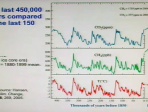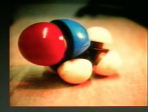 00:41:00
00:41:00
Science, Society & Sustainability
The fact that our modern world is so completely and precariously balanced on Science, Engineering and Technology (SET) makes an understanding of these disciplines by all in positions of significant responsibility vital. lthough wise decision-making ....
More details | Watch now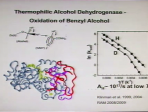 00:35:00
00:35:00
From ‘On Water’ and Enzyme Catalysis to Single Molecules and Quantum Dots, Theory and Experiment
Much of theoretical chemistry has involved equations and their application to experiments, Debye, Debye-Hueckel, Transition State Theory, Kramers, LCAO, RRKM, among others. In fortunate circumstances one can, as in a theory of electron transfer reac....
More details | Watch now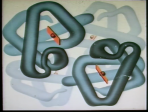 00:36:00
00:36:00
Structural Genomics – Exploring the Protein Universe
In today's post-genomic era, with the availability of the complete DNA sequences of a wide range of organisms, structural biologists are faced with new opportunities and challenges in _structural genomics”. In contrast to classical structural biol....
More details | Watch now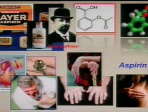 00:31:00
00:31:00
Why Our Proteins Have to Die so We Shall Live
Between the sixties and eighties, most life scientists focused their attention on studies of nucleic acids and the translation of the coded information. Protein degradation was a neglected area, considered to be a non-specific, dead-end process. Whil....
More details | Watch now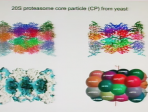 00:42:00
00:42:00
Molecular Machines for Protein Degradation Inside Cells
Within cells or subcellular compartments misfolded and/or short-lived regulatory proteins are degraded by protease machines, cage-forming multi-subunit assemblages. Their proteolytic active sites are sequestered within the particles and located on t....
More details | Watch now 00:31:00
00:31:00
Atmosphere Climate and Chemistry in the Anthropocene
Despite their relatively small mass, 10-5% of the earth biosphere as a whole, generations of ambitious 'homo sapiens' have already played a major and increasing role in changing basic properties of the atmosphere and the earth's surface. Human activ....
More details | Watch now 00:38:00
00:38:00
Passions and Activities beyond Science
"Success in science requires full devotion and relentless day and night activity in the research lab!” This is a notion common among the public, and often also among teachers and beginning students. _Let your scientific activities become your most....
More details | Watch now 00:31:00
00:31:00
Chemistry: the Key to Our Future
Chemistry is not merely a science of making observations in order to better understand Nature. Our science is creative and productive, generating substances of very high value from almost nothing. Chemists already have made enormous contribution to....
More details | Watch now 00:34:00
00:34:00
Greenhouse Gases and Climate Change
The 'greenhouse gases (GHG)' intercept a fraction of outgoing terrestrial infrared radiation, creating the natural greenhouse effect which warmed the atmosphere by approximately 32 Celsius at the beginning of the 20th Century. The activities of manki....
More details | Watch now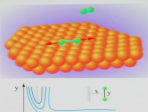 00:31:00
00:31:00
From Atoms to Complexity: Reactions at Surfaces
The interaction of molecules with the surfaces of solids forms the basis of heterogeneous catalysis and can now be investigated in atomic detail. Systems of this kind may, on the other hand, serve as models for studying self-organisation of matter le....
More details | Watch now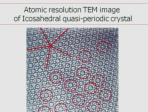 00:40:00
00:40:00
The Discovery of Quasi-Periodic Materials
Crystallography has been one of the mature sciences. Over the years, the modern science of crystallography that started by experimenting with x-ray diffraction from crystals in 1912 has developed a major paradigm Ð that all crystals are ordered an....
More details | Watch now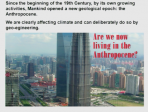 00:23:00
00:23:00
Atmospheric Chemistry and Climate in the Anthropocene
Despite their relatively small mass, 10% of the earth biosphere as a whole, generations of ambitious ‘homo sapiens’ have already played a major and increasing role in changing basic properties of the atmosphere and the earth’s surface. Human ....
More details | Watch now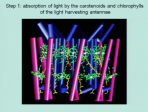 00:30:00
00:30:00
Photosynthesis, Biomass, Biofuels: Conversion Efficiencies and Consequences
It is generally accepted that the global warming, which we undoubtedly observe, is the result of an increased concentration of greenhouse gases like carbon dioxide and methane in the atmosphere. Within this scenario it is evident that we have to re....
More details | Watch now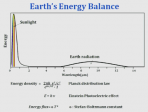 00:34:00
00:34:00
The Science and Policy of Climate Change
Climate change is the most serious environmental challenge facing society in the 21st century. The basic science is clear: the International Panel on Climate Change concluded that there is more than 90% probability that human activities are causing....
More details | Watch now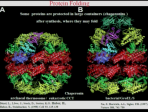 00:35:00
00:35:00
Proteasome and DegP Protease, Mechanisms and Drug Design
Within cells or subcellular compartments, mis-folded and/or short-lived regulatory proteins are degraded by protease machines, cage-forming multi-subunit assemblages, the proteasome and HtrA/DegP. They are essential components in very complex regul....
More details | Watch now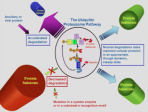 00:29:00
00:29:00
The Ubiquitin Proteolytic System as a Novel Drug Development Platform
Between the 50s and 80s, most studies in biomedicine focused on the central dogma - the translation of the information coded by DNA to RNA and proteins. Protein degradation was a neglected area, considered to be a non-specific, dead-end process. ....
More details | Watch now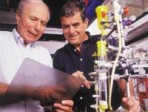 00:28:00
00:28:00
Roles of the Ubiquitin System in Health and Disease
The selective degradation of many short-lived proteins in eukaryotic cells is carried out by the ubiquitin-mediated proteolytic system. In this pathway, proteins are targeted for degradation by covalent ligation to ubiquitin, a highly conserved sma....
More details | Watch now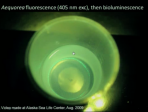 00:33:00
00:33:00
Engineering Molecules for Fun, Profit, and Clinical Relevance
Molecules to observe and manipulate biological systems and disease processes can be devised by a variety of strategies, ranging from pure chemical design and total synthesis to genome mining and high-throughput directed evolution. Examples of both ....
More details | Watch now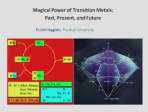 00:36:00
00:36:00
Magical Power of d-Block Transition Metals: Past, Present and Future
Until recently, most of the 24 d-block transition metals had been used primarily as useful materials for (i) construction and also as tools and containers, etc., (Ti, Zr, Fe and their alloys with V, Cr, Mn, Co, Ni, etc.), (ii) precious and ornamental....
More details | Watch now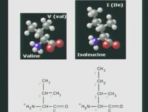 00:40:00
00:40:00
Glimpses of Chemical Wizardry
In an evangelical spirit, three vignettes will be presented that have the character of molecular parables: stories with lessons that transcend the specific details.(1) How knowledge of the orientation of a methyl group with respect to a neighboring d....
More details | Watch now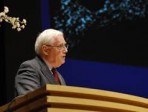 00:32:00
00:32:00
The Fuel of Life
The lecture will be devoted to the topic of how the biological world supplies itself with energy to make biology work, and what medical consequences ensue when the energy supply chain in our bodies is damaged or defective. We derive our energy from....
More details | Watch now 00:30:00
00:30:00
Catalysis at Surfaces: From Atoms to Complexity
Catalysis by solid surfaces is, among others, of importance for the chemical industry (e.g. the Haber-Bosch process) as well as for environmental chemistry (car exhaust catalyst). Surface physical techniques enable investigation of the underlying e....
More details | Watch now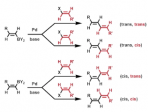 00:30:00
00:30:00
Cross-Coupling Reactions of Organoboranes: An Easy Way for Carbon-Carbon Bonding
The palladium-catalyzed cross-coupling reaction between different types of organoboron compounds and various organic halides in the presence of base provides a powerful and general methodology for the formation of carbon-carbon bonds. The (sp3)C-B ....
More details | Watch now